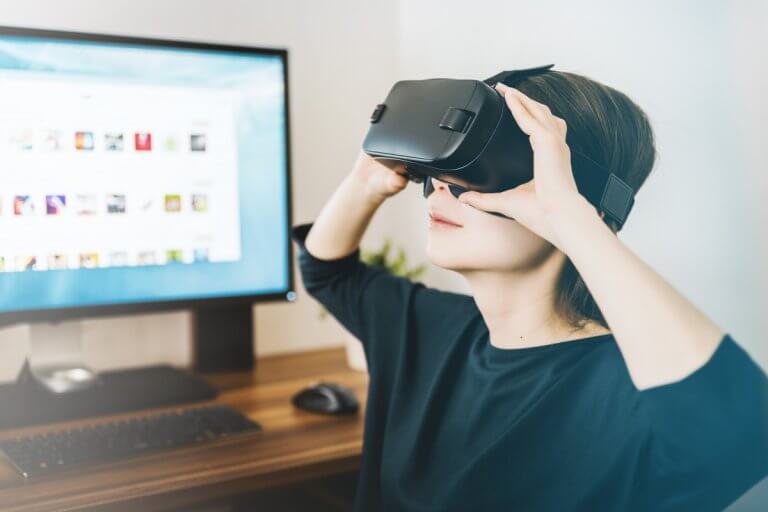
Imagine observing African elephants in their natural habitat, or experiencing the psychological stress of warfare first-hand.
These are experiences only a select number of individuals experience in their life – but thanks to Virtual Reality (VR), students could soon see these life-affirming and educationally empowering encounters woven through curricula.
Usually reserved for expensive field trips and rare placements, all students on a programme can now be transported to these immersive locations and situations regardless of where in the world they’re studying.
This allows learners to have meaningful encounters with out-of-the-ordinary experiences they read about in research papers and textbooks, creating lasting impressions and cultivating deeper retention than reading.
Research conducted at the University of Maryland shows that those given information through VR platforms have a more accurate and confident retention and recall rate than those shown the same information on a screen.

VR has the potential to cultivate deeper learning experiences. Source: Giphy
Through a learning technique known as a ‘memory palace’ where people remember facts mentally placed in a familiar journey or building, those taking part in the study revealed higher cognitive feedback than traditional methods of learning.
“This data is exciting in that it suggests that immersive environments could offer new pathways for improved outcomes in education and high-proficiency training,” says Amitabh Varshney, co-author and Dean of the College of Computer, Mathematical, and Natural Sciences at the University of Maryland.
The potential for VR in higher education is limitless; from healthcare students gaining a first-hand account of how dementia feels, to mechanical engineers experiencing a car engine in 360 degrees from the comfort of a lecture theatre.
It also provides a safe platform for students to gain crucial skills from anywhere in the world. Schools in rural areas could use programmes developed by the UK’s National Health Service to train new doctors, for example, also expanding the range of distance learning.
But some students are concerned that learning these skills through VR platforms will not adequately prepare them for the world.
Anna Martin, a UK student currently studying Health Science at Boston University, told Study International: “VR would allow more of us to experience tricky situations, but it might not prepare us for when it really happens.
“The nerves and adrenaline may not kick in as quickly as they would in real life. What if the real experience sends us into overdrive because we thought we were prepared?”
Universities are also investing research into VR platforms to help forward practices outside of the education sphere.
A research study by the University of Edinburgh found that the little rush of dopamine released by the brain when we are exposed to something novel or surprising enhances #memory retention. Another proof why #VR experiences can be so powerful, mainly for #education and #learning pic.twitter.com/pCm0SV2XHW
— Matias Nassi (@matinassi) July 17, 2018
The University of Oxford – the UK’s leading university and fifth-best university in the world according to the QS World University Rankings 2019 – is using VR to enhance healthcare in developing countries through the Life-Saving Instruction for Emergencies (LIFE) project.
Many institutions have also implemented specialised VR labs, allowing researchers and students to innovate with the technology. VR currently holds a predicted value of more than US$40 billion by 2020, according to Reuters.
And with a forecasted annual growth rate of 34 percent over the next five years, according to Venture Beat, graduates in the field will enter an exciting market with the knowledge needed to evolve a fast-emerging industry.







